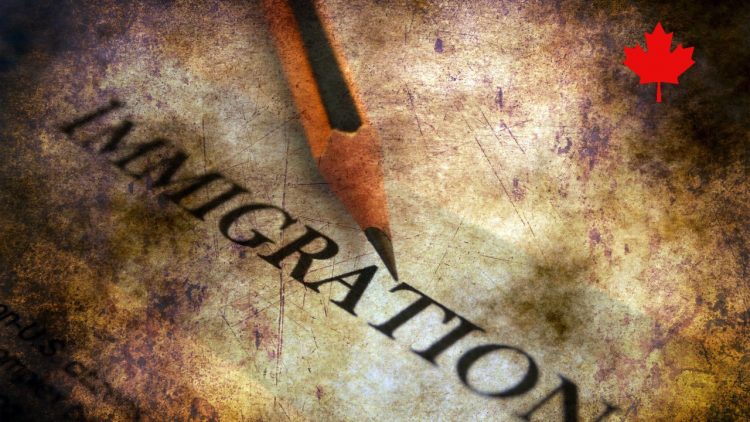Canadian Prime Minister Justin Trudeau has been a major proponent of the progressive and liberal values that Canada stands for. But, it seems like he is not the only one who is in favour of these values. In a recent study, it was found that the CRS score, which stood at 500, dropped to 498. This is a major decline in just one year. The decline can be attributed to the policies of President Trump as well as Canada’s own immigration policy. The CRS score is an index used by scholars to measure countries how welcoming they are to refugees and immigrants.
On October 26, 2022, there was a draw for all of the Express Entry programmes, which was the 234th draw for individuals seeking permanent residence via Express Entry. As a direct consequence of this, the number of Comprehensive Assessment System (CRS) points necessary to qualify for an invite to apply (ITA) has been reduced in comparison to the all-program draw that took place on October 12, 2022. In Canada’s most recent all-program Express Entry draw, the minimum score required by the Comprehensive Ranking System fell below 500 for the first time since the program resumed operations after the pandemic.
Minimum CRS Required
The minimum CRS score necessary for entry into the draw on October 26 was 496, four points less than the draw held on October 22. In addition to that, a total of 4,750 invites to apply were sent, which is the largest since the all-program draw process was restarted in July. It indicates that Canada has, as of yet, distributed 35,615 invites in the year 2022, the bulk of which have been sent after all-program draws resumed operations in July.
In 2021, IRCC awarded a record number of 114,431 ITAs, all of which were granted to applicants for the Canadian Experience and the PNP. It surpassed the old record of 107,350, which had been established in the year 2020.
The rule for breaking ties
The rule for breaking ties was used for the first time in the most recent draw, which took place on May 9, 2022, at 5:04 am Eastern Standard Time. If more than one applicant met the required minimum score on the CRS, invitations were only extended to those applicants whose Express Entry profiles were received before the specified date and time.
The lowest Comprehensive Assessment System (CRS) score required to get an invitation was 496, and 4,750 people were given invitations. Candidates from the Federal Skilled (FSWP), the Federal Skilled Worker Program (FSTP), and the Canadian Experience Classes (CEC) were all considered for invites. All of these services are a part of the overarching Express Entry system.
From then until December 2020, all Express Entry program drawings were suspended. During the hold, invitations to apply were restricted to those who were either CEC members or PNP nominees (ITAs). Due to a backlog in submissions due to travel restrictions relating to COVID-19, the drawings have been put on hold. It was reported in September of 2021 that IRCC has also suspended CEC drawings.
Inviting Immigrants
Canada is inviting immigrants to join the country by giving them a pathway to citizenship. The country has been welcoming immigrants for many years and it continues to do so in 2018.
In 2017, Canada welcomed over 300,000 new immigrants. This number is set to increase in 2018 with the introduction of the Express Entry system which will allow skilled workers to apply for Canadian permanent residence from within Canada. Canada has always been a welcoming country for immigrants, but the country is facing a new challenge in the upcoming years. There are many factors that contribute to this issue, such as population growth and labour shortage. You will analyze the issue and provide potential solutions to help Canada deal with this problem.
The Canadian government is trying to find ways to keep up with population growth and labour shortage by implementing policies that help immigrants better integrate into society. The policies include providing free education, free healthcare, and easier access to citizenship.
Comparison between 2021 to 2022
Statistics from Immigration, Refugees, and Citizenship Canada (IRCC) show that in Q1 of 2022, the country welcomed over 114,000 new permanent residents.
There were 35,415 permanent new residents in January, 37,335 in February, and 40,785 in March. Through the use of streamlined procedures, Immigration, Refugees, & Citizenship Canada (IRCC) seems to have been able to enhance its services to Canadians. This has resulted in twice as many decisions being made by IRCC than during the same period in 2021. Furthermore, IRCC has been updating and expanding its services for foreign nationals seeking permanent residence in Canada. Among these features are digital citizenship exams, online naturalization ceremonies, and a database to monitor applications. This has helped bring 113,535 new legal residents to Canada in Q1 2022.
The one-time, transient to permanent residency (TR to PR) channel, which was closed on November 5th, 2021, has been a major contribution to this year’s immigration numbers when compared to the same period of the year 2021. As of the end of 2021, IRCC has processed over 500,000 decisions and received over 405,000 additional permanent residents. Canada has never before accepted so many emigrants in a given year. More than 560,000 applications for study permits were approved by IRCC in 2019. Around 169,000 people in the same year applied to change their status in Canada from worker to permanent resident.



